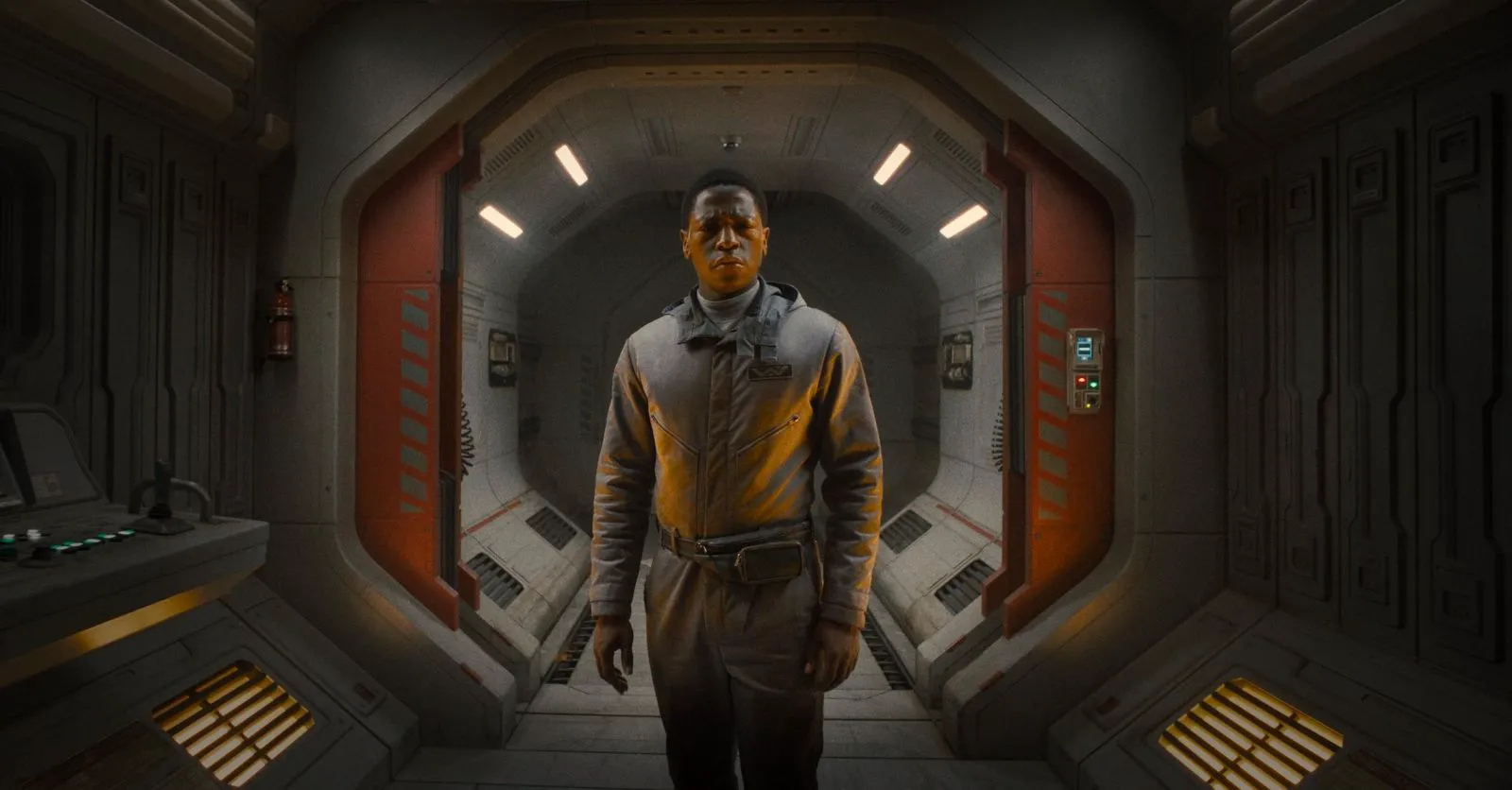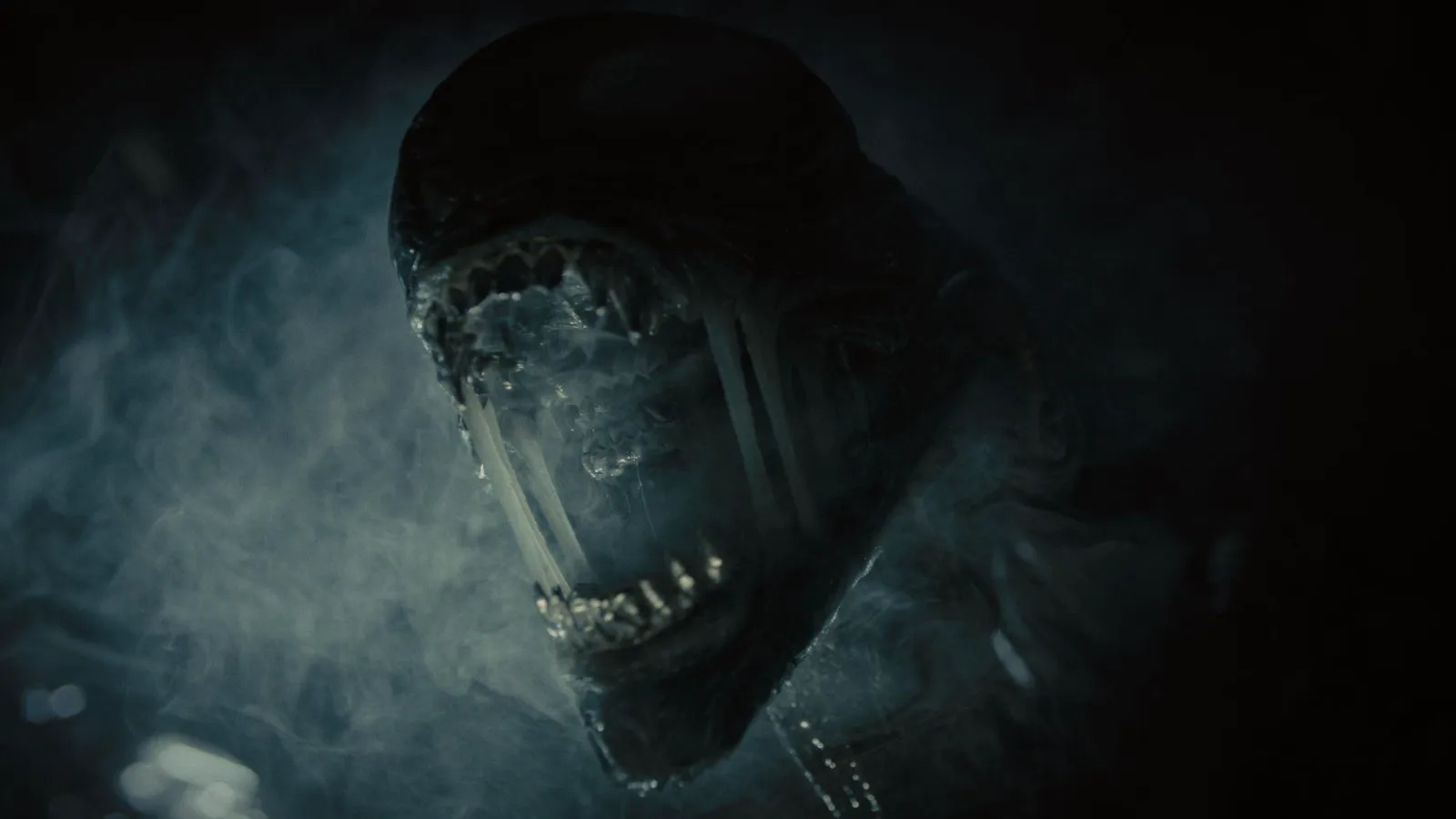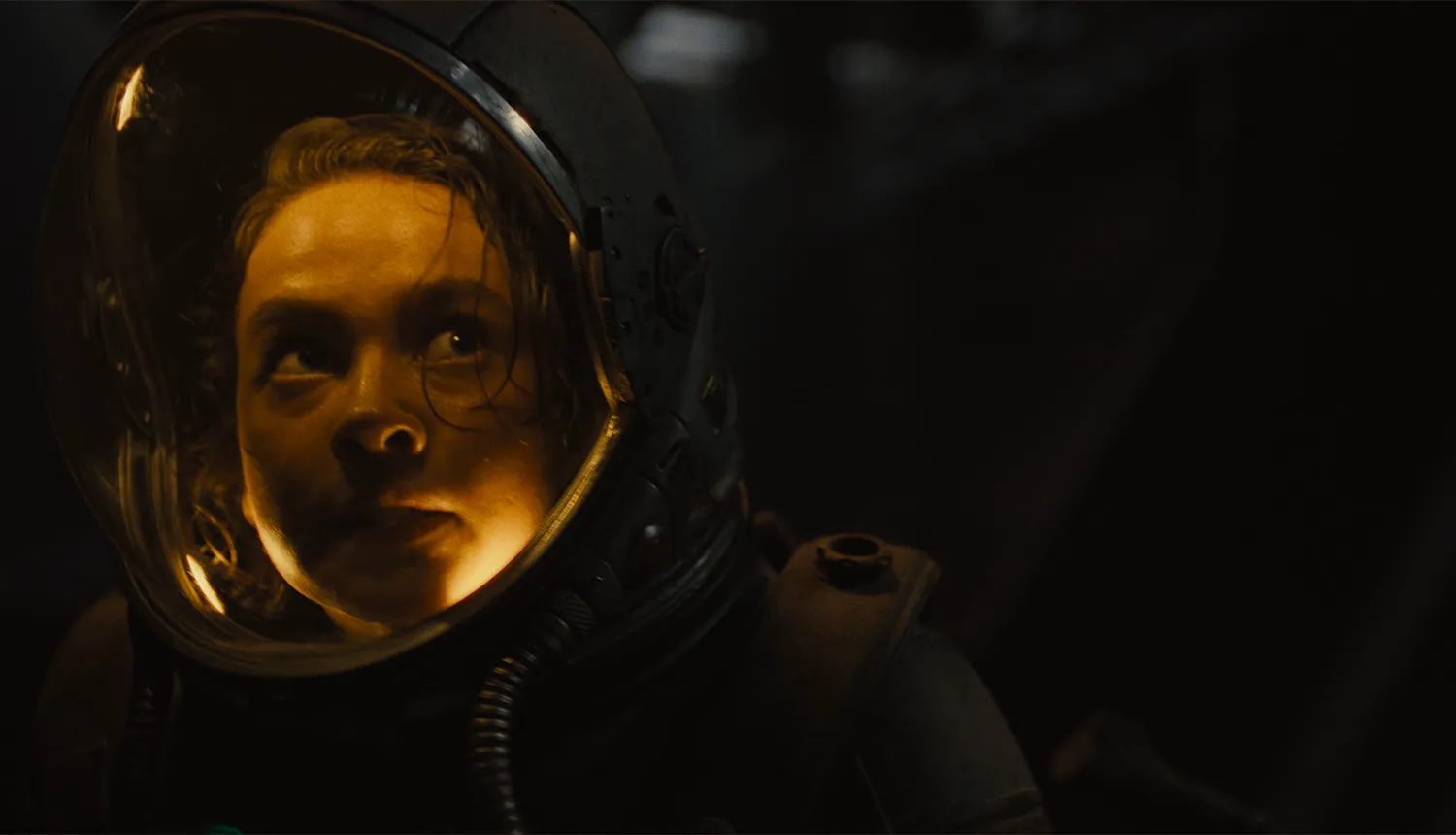Alien: Romulus - A Retro-Futuristic Nightmare Reborn
In the grim setting of a mining colony, a group of young individuals find themselves trapped, toiling away for the Weyland-Yutani Corporation. Their dreams are filled with escape, preferably to another planet far, far away. Together with Rain (Cailee Spaeny), an orphaned young woman, and her synthetic “brother,” Andy (David Jonsson), they hatch a daring plan: to reach a derelict spaceship and use its hypersleep chambers to survive the long interstellar journey. However, their chosen vessel is far from abandoned; it has become a colony overrun by Xenomorphs and facehuggers.

David Jonsson as Andy in “Alien: Romulus”
The screams from the depths of space have become commonplace. Ever since Ridley Scott’s “Alien” first graced the screens in 1979, the franchise has undergone numerous transformations, shifting genres, directors, and audience reactions. (It’s an unspoken rule of etiquette to pretend that “Alien 3” and “Alien: Resurrection” never happened.) James Cameron brought gunpowder and a soldier’s spirit, David Fincher faced off with producers, and Jean-Pierre Jeunet delivered avant-garde bordering on the pathological. It seems the “Alien” series knows no bounds, a sentiment readily acknowledged by Sir Ridley Scott himself, for whom “Prometheus” and “Covenant” were not mere genre films but philosophical reflections on the nature of creator and creation, on androids and electric sheep.

Xenomorph in “Alien: Romulus”
A Horror Maestro at the Helm
Federico Álvarez, the Uruguayan director, is a seasoned artist in the world of horror. He approaches “Romulus” with the same fervor he brought to the “Evil Dead” reboot a decade ago. With the claustrophobic thriller “Don’t Breathe,” any lingering doubts vanished: Álvarez is not just a franchise fanatic who got lucky; he’s a visionary and a professional. Hellish demons and killer branches, terror escalating into a nauseating spectacle – all unfolded at the snap of a finger, once the Necronomicon was opened. Álvarez enters the world of “Alien” with the same energy: the camera races through the rusty interiors of the ship, an army of facehuggers latches onto teenagers, and the reproductive process becomes not a blessing but a curse.

Cailee Spaeny as Rain in “Alien: Romulus”
A Brutal, Organic Slasher
“Romulus” is a brutal slasher, a pure, organic horror that Álvarez crafts without prejudice and, above all, with love for the genre. The young crew’s hardships predictably lead to infighting, Spaeny’s character – a 26-year-old Ripley for a new generation – grows stronger as she navigates the ship’s compartments, guns jam at the worst moments, and doors slam shut. The seventh film in the franchise embraces straightforward techniques, and the familiar tropes don’t feel tiresome; the heavy fists of the old school are more convincing than eloquent discussions about gods and acts of creation. The film takes the best from the first two “Alien” movies, positioning itself squarely between them in both plot and style. Some may complain that Álvarez doesn’t invent anything new, simply mixing the best elements like a seasoned DJ. Others, on the contrary, will recognize that “Romulus” has unique genre contours. Álvarez creates the most terrifying episodes in his own unique style, alternating silence and noise, Benjamin Wallfisch’s electronic scores and the frantic screams of young adults. The critics’ praise is genuine – this is a truly nerve-wracking and terrifying film.
Retro-Futurism and Visceral Horror
What will undoubtedly stun everyone in “Romulus” is the meticulous visual design. Álvarez doesn’t feel constrained by modernity; his film is fueled by retro-futurism – the frame is constructed as it was 40 years ago. The sets feel tangible, years of dust settle on the dashboards, and emergency lights pierce the dim interiors of the ship – a mechanical and organic hell – creating a beautiful outline. The world of “Romulus” is not just a biomechanical nightmare where reproductive motifs reach a new level of execution, but also a film with the lost spirit of the 70s and 80s, when the world on screen felt real, you could almost touch the spacesuits, and feel the drops of sweat on every muscle of the heroine. Perhaps the “Alien” universe will not offer anything new or venture into uncharted waters. But when a sabbath of crawling creatures unfolds on screen, sirens wail, and guns fire, the question answers itself – the franchise’s ship is hurtling towards the planets of H.R. Giger. And it cannot deviate from its course.